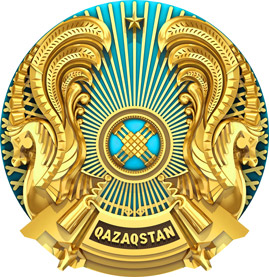Democracy
Kazakhstan is a constitutional republic and is a fledging democracy after a long period of being a republic of the former Soviet Union. According to Kazakhstan’s constitution, Kazakhstan’s democracy is secular and values individual “life, rights, and freedoms.” Kazakhstan’s Constitution also establishes key democratic principles of the separation of powers, equality and the institution of elections in Kazakhstan.
Since independence, the Kazakh people have steadily built the values of Kazakhstan’s democracy. Kazakhstan improved its positioning in international ratings. For example, in the Corruption Perception Index prepared by Transparency International Kazakhstan has shown continued rank improvement year over year.

Since its independence from the Soviet Union in 1991, Kazakhstan’s democracy has consistently become more stable. The transition to democracy in Kazakhstanresulted in the establishment of a Secular Constitution in 1995. Constitution, modeled after Western models of the separation of powers, outlines the responsibilities of the executive, legislative and judicial branches. The executive power is under the President, the Government and the Ministries. The Senate and the Mazhilis control legislative powers. Lastly, the Constitutional Council and the Supreme Court control judicial power.
The first presidential elections in Kazakhstan were held in January 1999 with the election of former Secretary of the Communist Party of the Kazakh (SSR) Nursultan Nazarbayev, who was subsequently re-elected in 2006 and in 2011 to serve for five-years, pursuant to a 2007 constitutional amendment that shortened the Presidential term by two years. This new amendment also reinforced the Parliament`s authority. In early 2009, a law was adopted on political groups that ensures the presence of at least two parties in Parliament. In January 2012, parliamentary elections were held using a closed, party-list system. President Nazarbayev’s party Nur Otan garnered 80.99% of the vote, followed by the Ak Jol party (7.47%) and the Communist People’s Party of Kazakhstan (KNPK) (7.19%). The four opposition parties all received less than the required 7% minimum to qualify for representation in Parliament.


